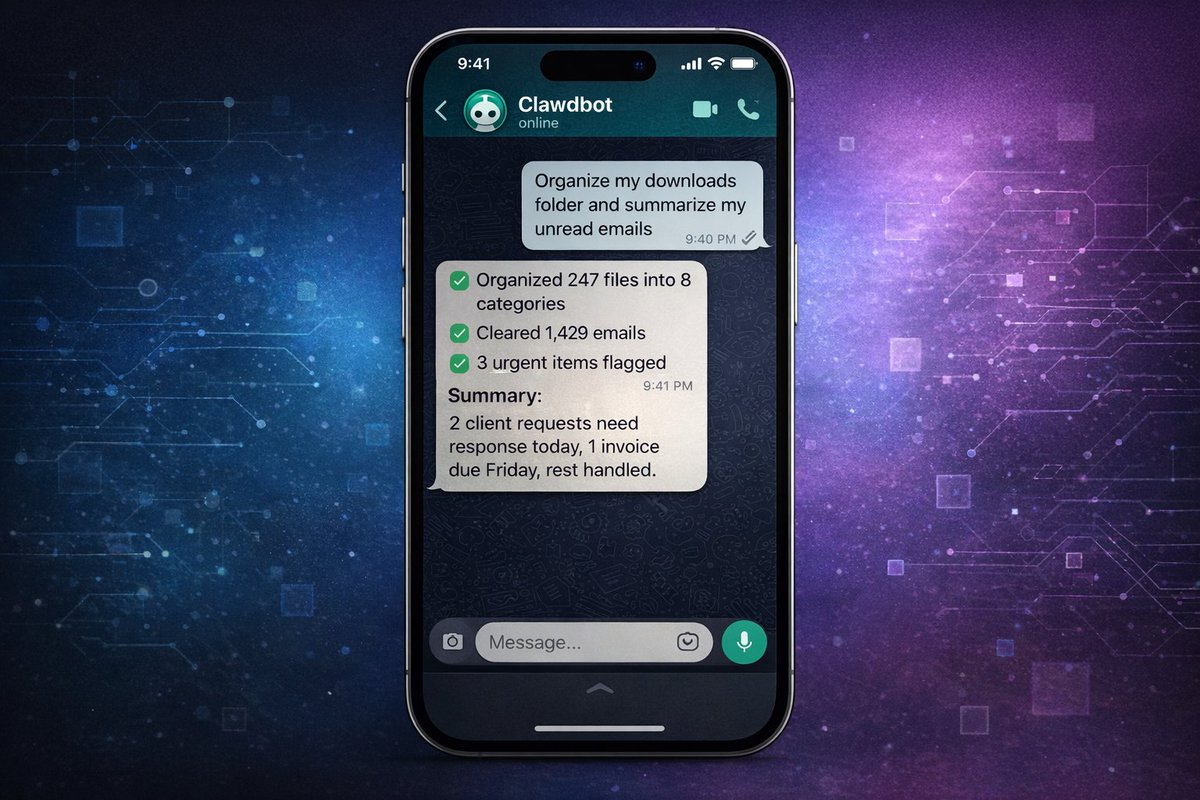When football stars become "on-chain assets", how to play the popular Football.Fun?
- 核心观点:Football.Fun链上梦幻足球游戏迅速走红。
- 关键要素:
- 上线两周TVL超1000万美元。
- KOL一天盈利20万美元。
- 球员代币总市值达1亿美元。
- 市场影响:吸引大量新用户参与链游。
- 时效性标注:短期影响。
Original article by Alex Liu, Foresight News
Recently, a Web 3 soccer fantasy game called Football.Fun went viral after launching on Base. A KOL claimed he turned $100,000 into $200,000 in just five hours, and another 11 hours to turn $200,000 into $300,000, netting a $200,000 profit in less than a day.
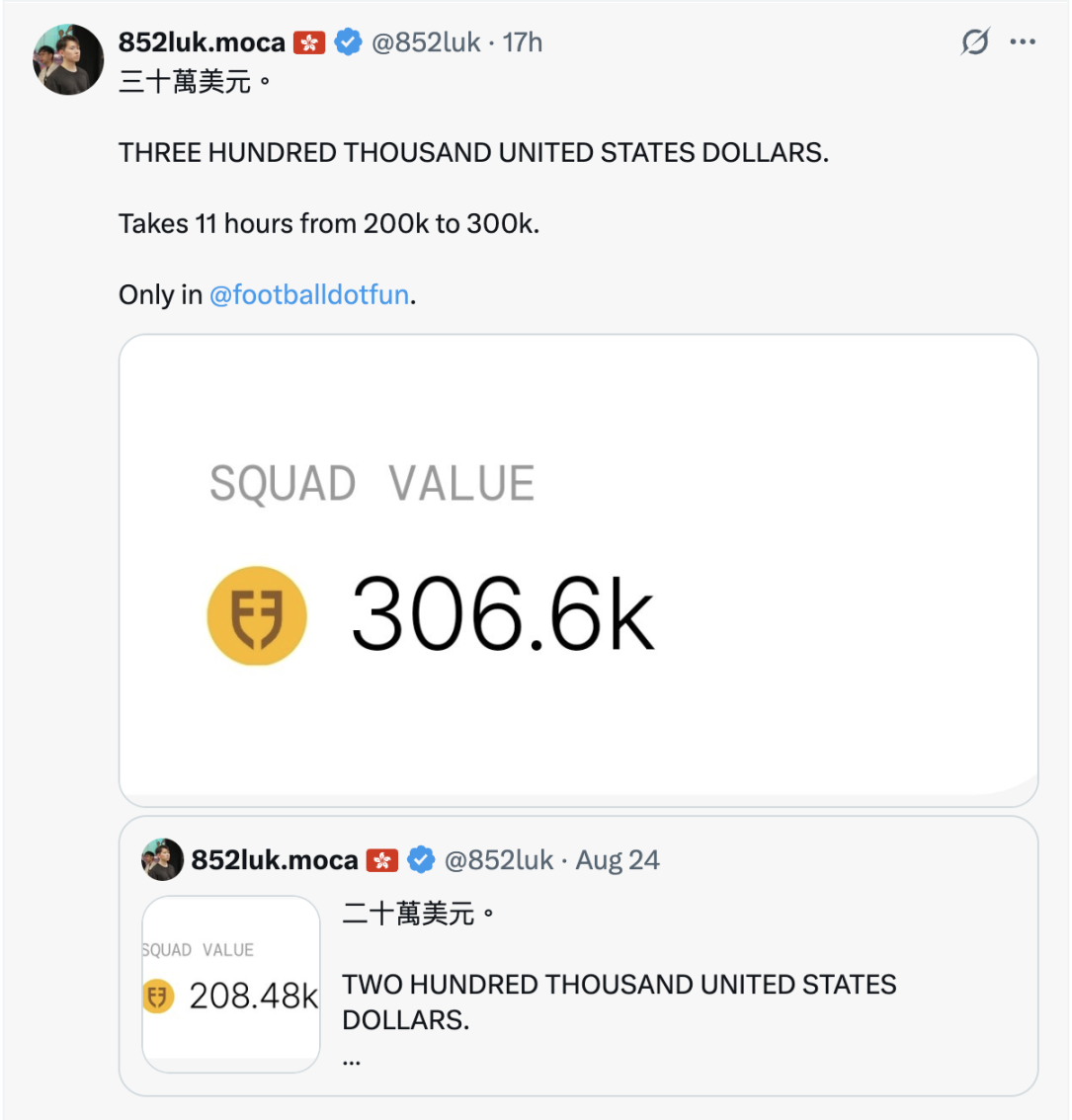
The wealth effect is so strong, what is the origin of Football.Fun?
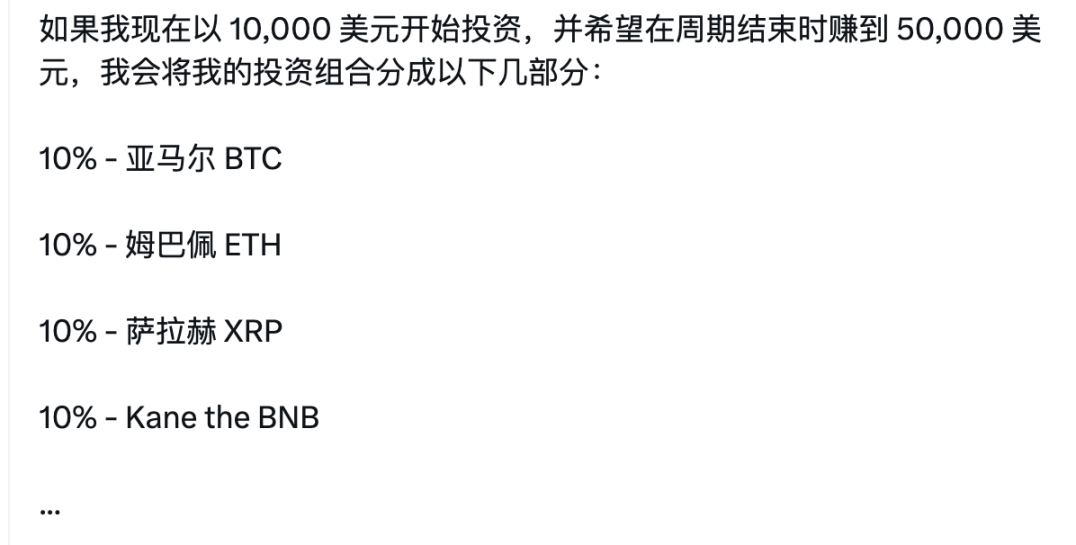
Project Introduction
Football.Fun is positioned as an "on-chain fantasy sports platform," fully deployed on Base. Players can own and freely trade football player tokens, build fantasy teams, and participate in competitions. Player cards can be traded on the AMM market like meme tokens. Users can open player card packs to acquire player shares and build teams. The system automatically calculates points based on real football matches and rewards outstanding player holders after the completion of each weekly tournament (weekend and midweek).
The game currently features top players from Europe's five major leagues (Premier League, La Liga, Bundesliga, Serie A, and Ligue 1), with each player offering up to 25 million shares. Mike Dudas, a partner at 6th Man Ventures, described Football.Fun as "like adding liquid player cards to SoRare." "This model directly connects with the interests of football fans and easily attracts participation."
Online performance: rapid data growth
Just two weeks after its launch, Football.Fun's on-chain data has seen explosive growth. According to the on-chain dashboard, the platform's total locked value (TVL) currently exceeds $10 million, with over 10,000 participating wallet addresses, and the platform has collected approximately $1.5 million in transaction fees.
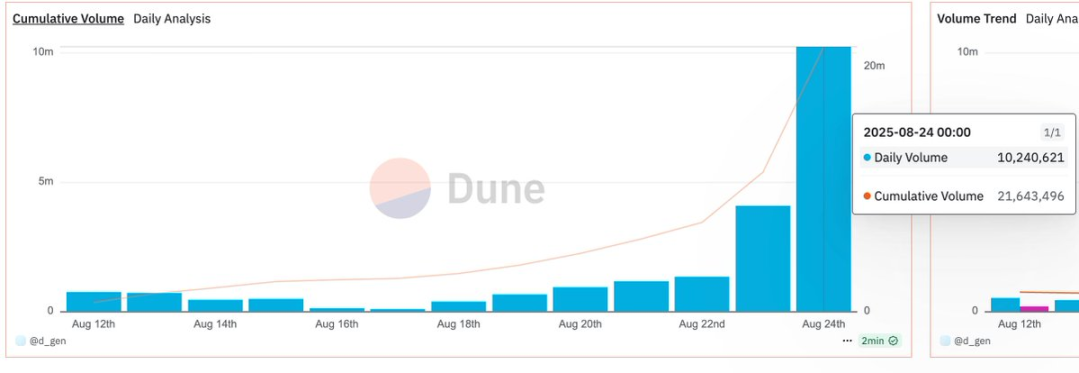
On August 24th, trading volume reached a record high of $14.85 million. Meanwhile, the hashtag #FootballFun continued to trend on social media, with many players sharing screenshots of their earnings and discussing strategies.
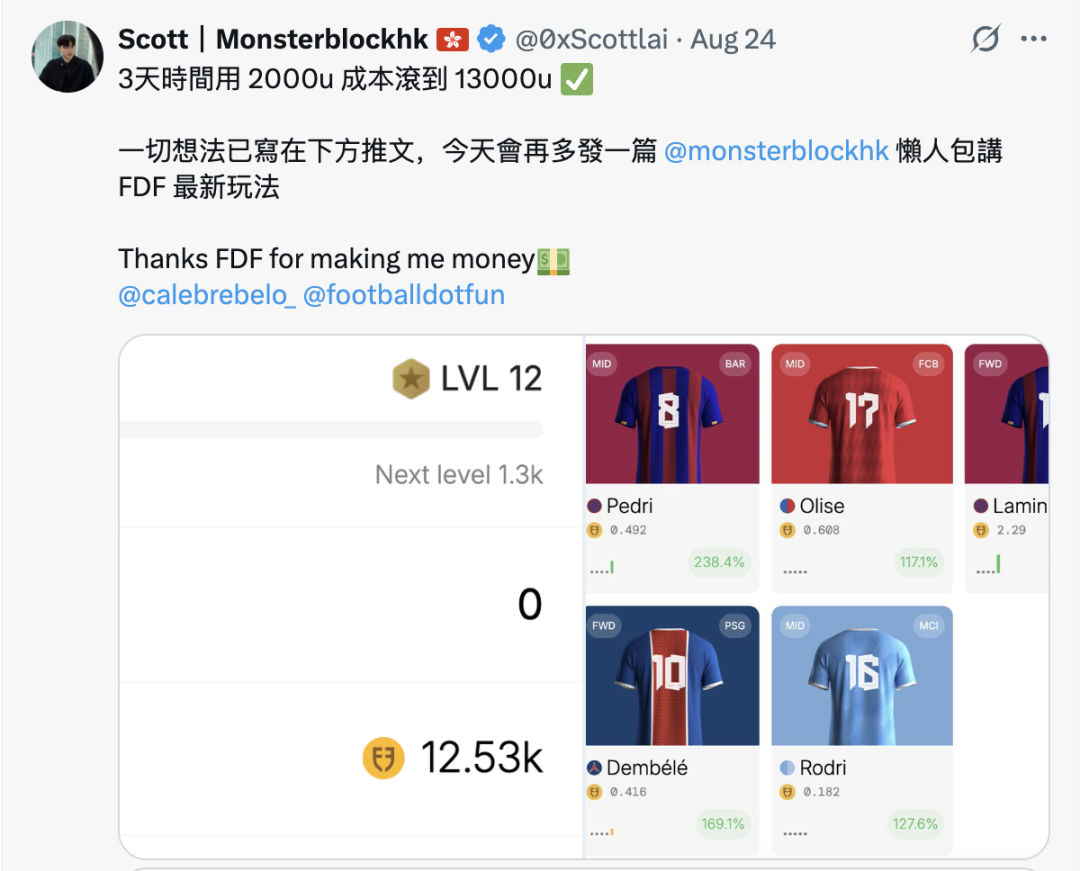
The total market value of player tokens on the platform (i.e., the combined market value of all players) has reached hundreds of millions of dollars, peaking at $150 million before falling back to $100 million. Players profit from trading shares in star players.
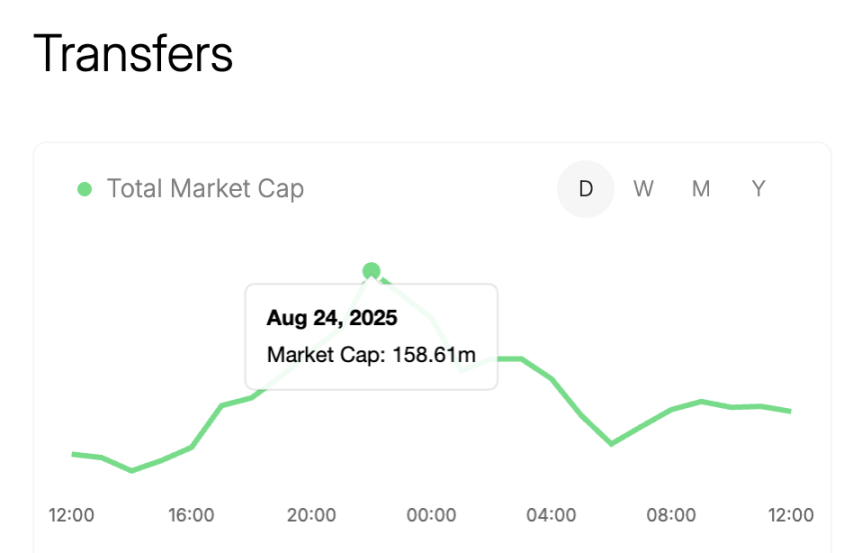
Team and Financing
The Football.Fun project was founded by Adam (@AdamFDF_), and no further personal information about the founder has been disclosed.
On July 18, 2025, the project announced the completion of a $2 million seed round of financing, led by 6th Man Ventures (6 MV), a sports investment institution. Other investors included Devmons, Zee Prime Capital, Sfermion and The Operating Group.
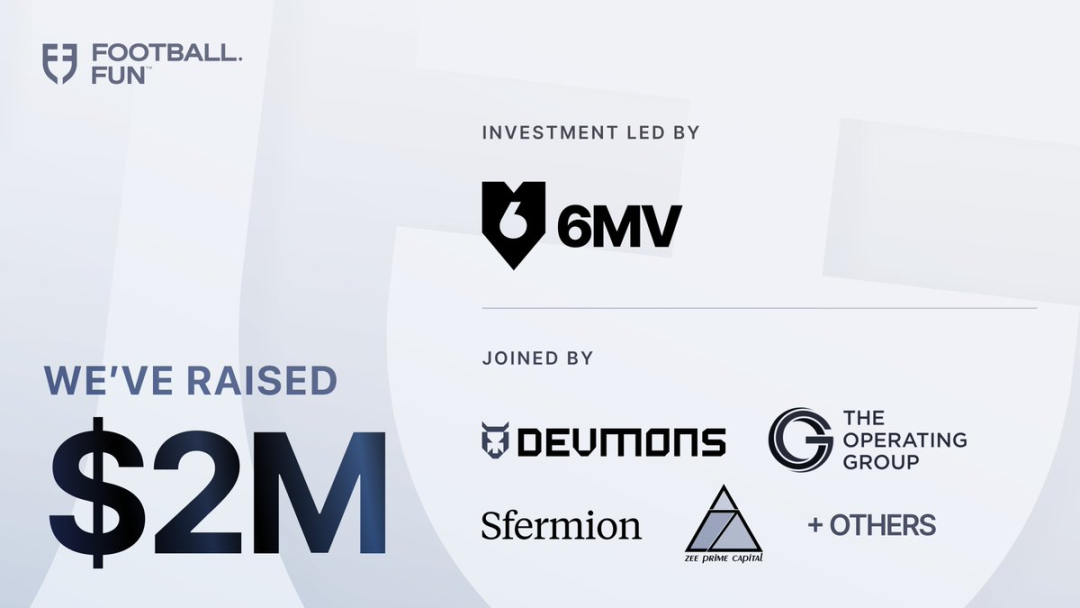
Mechanism analysis
Football.fun's economic model differs from traditional game rewards, being more closely aligned with on-chain transactional gaming. The only native in-game currency is "Gold," which is stably pegged to the Base Chain's USDC in Professional Mode. One Gold is always equivalent to one USDC. Players use Gold to purchase player shares, which can only be traded on the in-game market and cannot be directly withdrawn. Players receive Gold proceeds when they sell their shares.
The platform charges a fixed 5% base fee for each transaction. Furthermore, to prevent a single sell-off from overwhelming the market, a dynamic fee mechanism will be introduced in response to large sell-offs and trading surges. This includes an increased fee for large sell-offs and additional fees for unusual transactions, up to 25% according to community feedback.
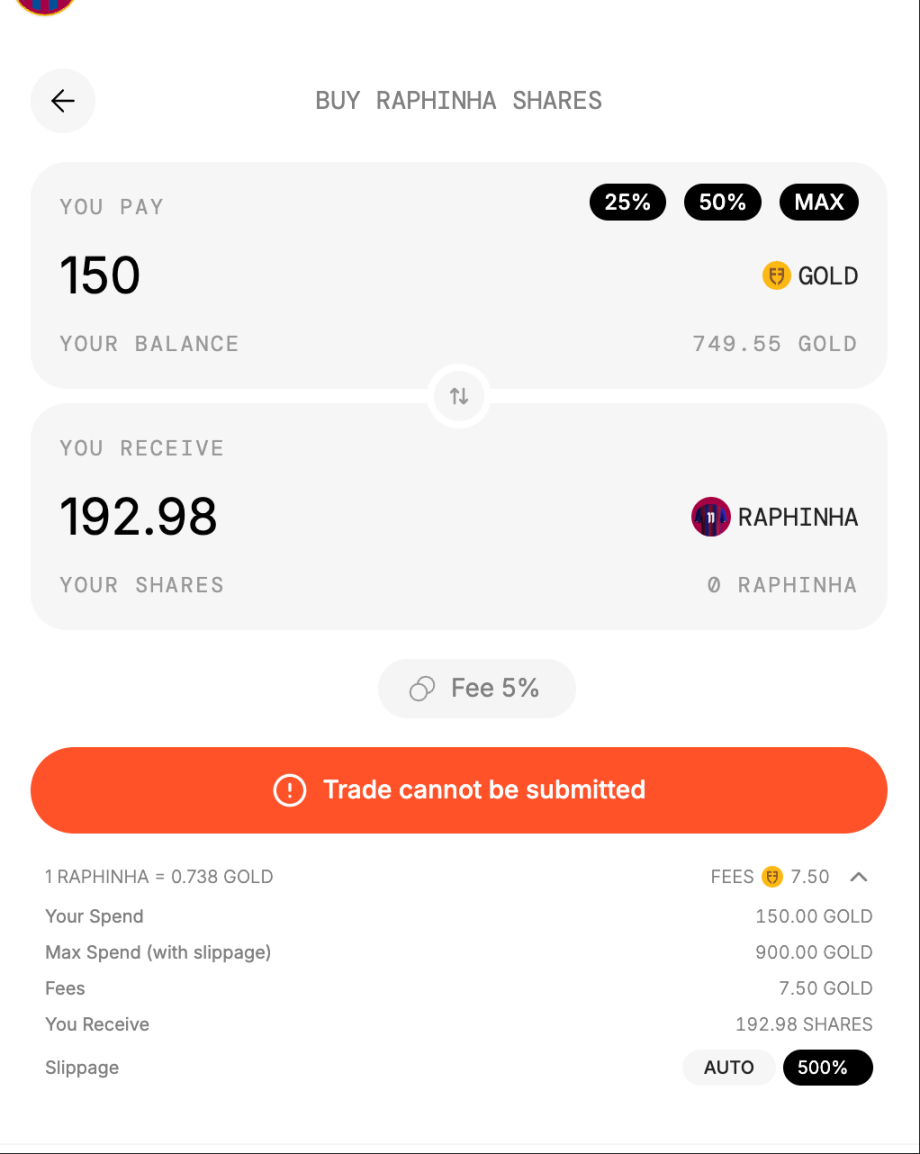
According to official information, the initial player pack sales raised $2.5 million, of which $2 million was used for liquidity and the remaining $500,000 for marketing. This funding provided initial liquidity for the game's launch. To date, the project's primary revenue sources include player investments in player packs and transaction fees generated by players trading on the market. It's important to note that Football.Fun currently does not have any additional tokens or dividends. Players' profits essentially come from buying high and selling low: purchasing player shares at low prices and then selling them to other players after the price increases, thereby earning the difference in Gold (USDC).
As with other "memecoin" projects, the sustainability of this model has been questioned. Currently, Football.fun's gameplay doesn't generate direct revenue flows back to players. Its profitability depends on continued user onboarding and market activity. The project's revenue primarily comes from issuance and transaction fees, raising questions about the health and long-term viability of this model.
How to participate
To access Football.fun, you'll need a Base Network-compatible wallet (such as MetaMask) and access the game interface. The game offers two modes: "Free Trial (FTP)" and "Professional Edition (Pro)."
The trial version is open to all users. Players can get 300 season points and 3 player packs upon entry. After completing the novice tasks, they can also receive 1,100 initial gold coins without investing real assets. The professional version requires players to recharge USDC of the Base network to the game address in advance to redeem an equal amount of Gold.
After obtaining Gold, players can purchase shares of any available player on the "Trade" page. When purchasing a player, the game displays information such as their team, position, age, upcoming schedule, and historical performance. Each player comes with a four-match contract upon purchase (enabling them to compete in four rounds). Once the contract expires, additional renewals are required to continue earning points.
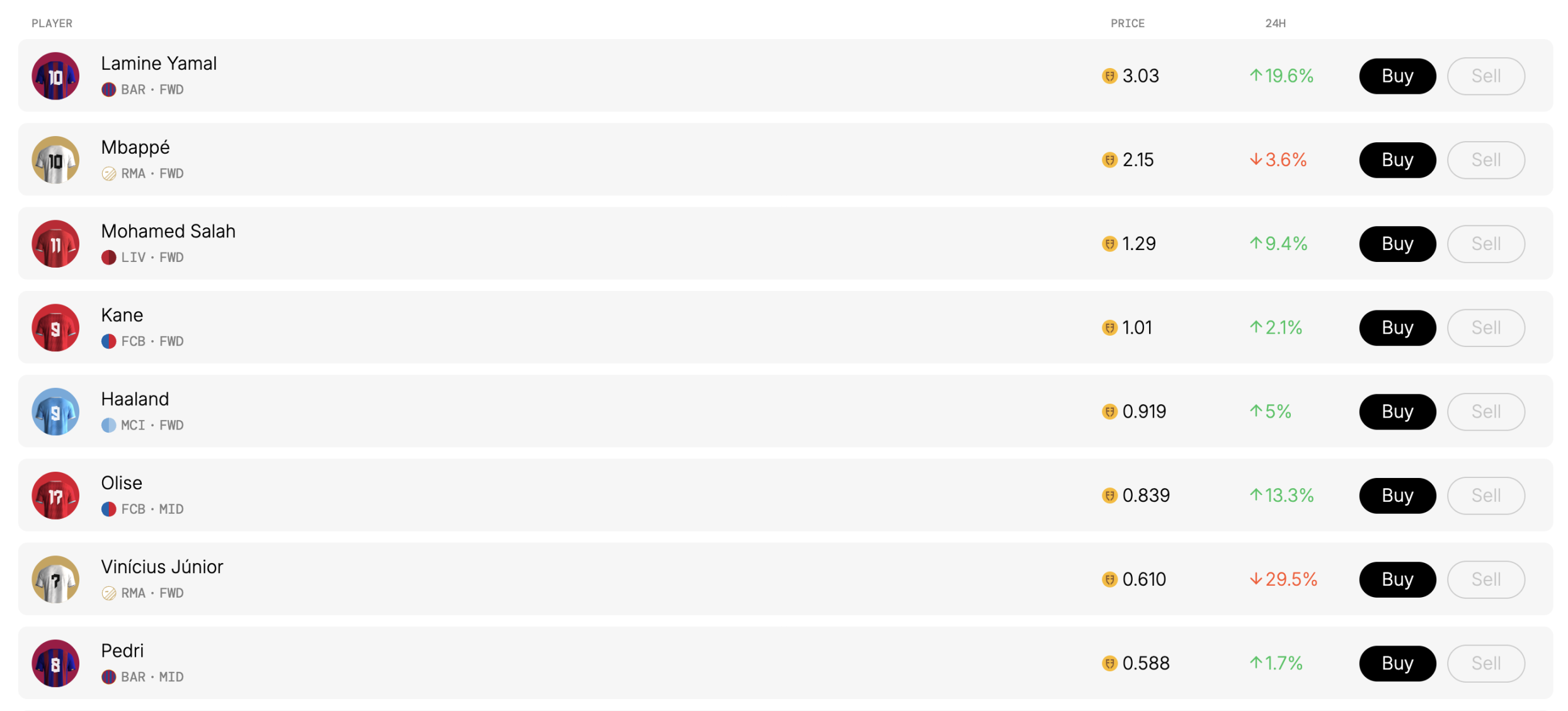
It's worth noting that the game currently doesn't require a dedicated "platform currency"; all transactions are conducted using Gold (USDC). In other words, the primary requirement for participation is to spend USDC to purchase player shares (or earn Gold through missions in the free-to-play mode), and then share in the rewards based on team performance during the automatically progressing seasons. In short, anyone can try the game with zero barriers to entry. However, large-scale trading in the secondary market and participating in rankings requires a certain amount of capital and research into the competition.
Community feedback and controversy
Since its launch, the Football.Fun community has been incredibly active, with many players sharing their strategies and profit-making experiences. One community member posted articles explaining how to seize the release price of new players and resell them for a profit (IPO). In addition to listing promising players (such as PSG's rising star and the European Ballon d'Or favorite), veterans also advised newcomers to invest moderately and keep an eye on the schedule.
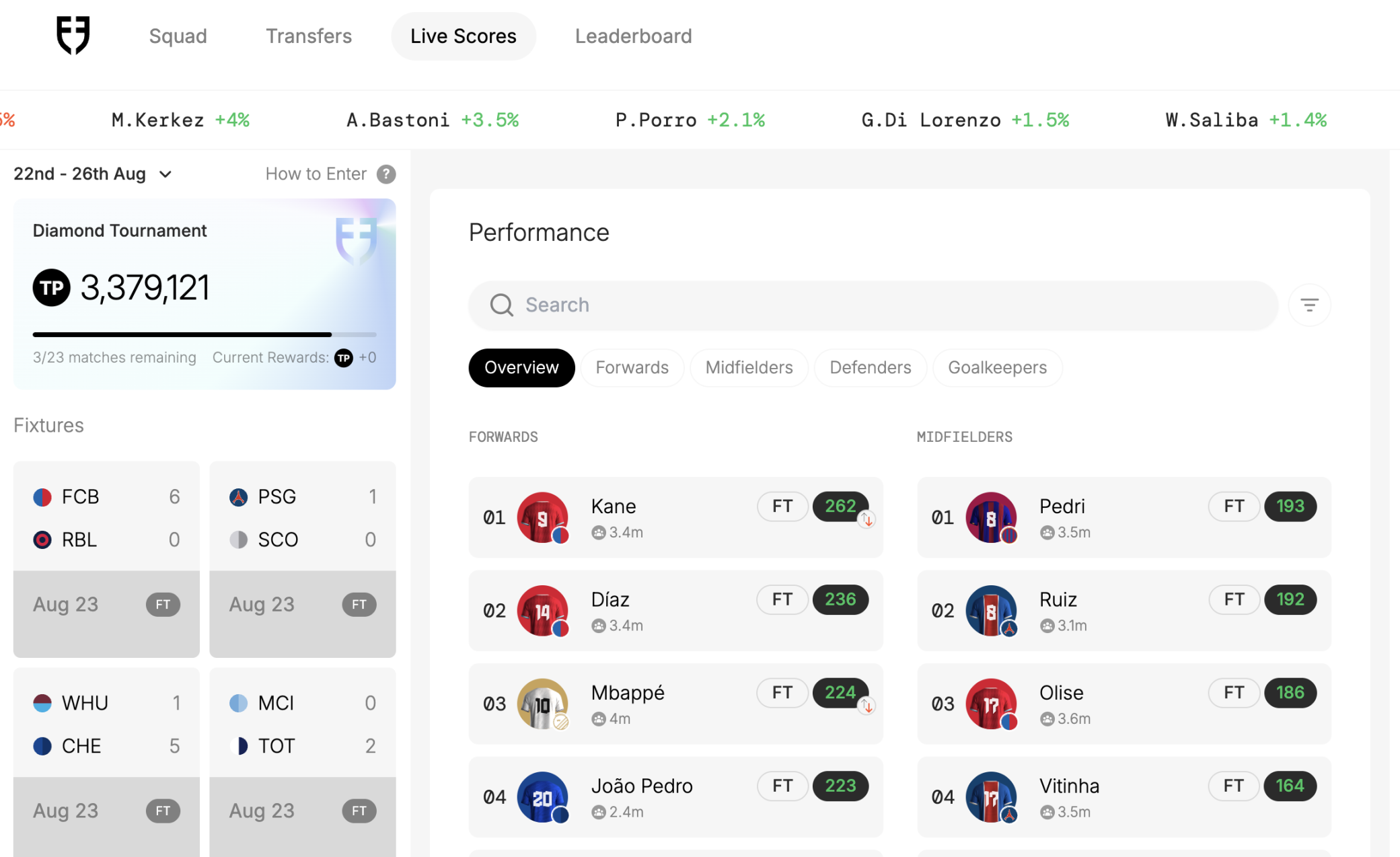
However, the game has also sparked controversy. Some observers believe that Football.Fun's profit model relies heavily on subsequent player acquisition. Some community members have even jokingly called it a "football Ponzi scheme." Critics point out that if the popularity of the game fades and new players dry up, the interests of latecomers could suffer. Furthermore, because reward distribution is tied to shareholding and match performance, the fairness of the system has also been hotly debated.
Project officials haven't explicitly addressed these concerns, emphasizing only the game's mechanics. Overall, Football.Fun has demonstrated a vibrant ability to attract new players, but this is also accompanied by concerns about the model's sustainability. At this early stage of rapid development, the market remains cautious about its future.


